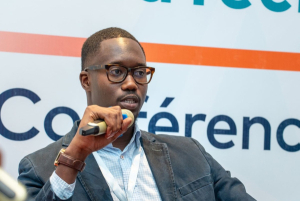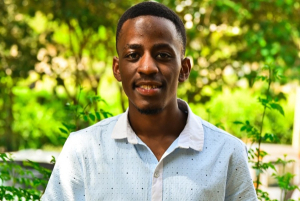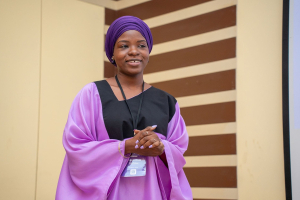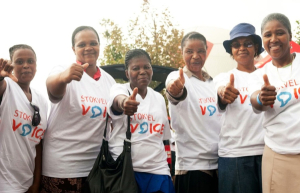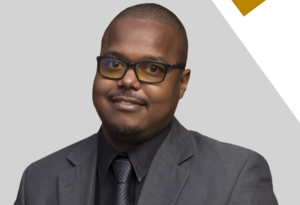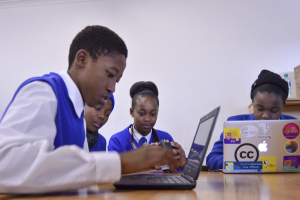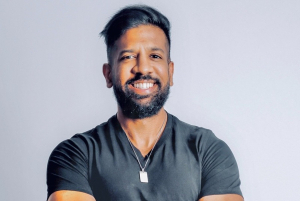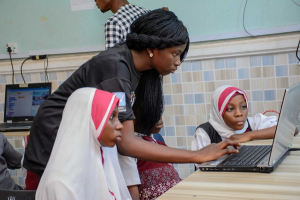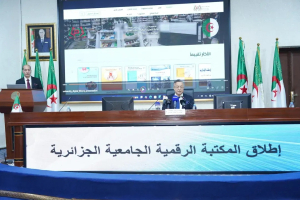Senegal’s Stéphane Mancabo Pushes Daily Baccalaureate Revision With Yello
- Senegalese entrepreneur Stéphane Mancabo co-founded Yello to shift baccalaureate revision toward daily, low-pressure learning.
- The Yello app offers offline-accessible, modular content and uses gamification to encourage consistency.
- Founded in 2023, the startup targets structural gaps in exam preparation through digital tools.
Stéphane Mancabo, a Senegalese entrepreneur, serves as co-founder and chief executive officer of Yello. The startup aims to turn baccalaureate preparation into a daily process that feels simpler, smoother, and less anxiety-inducing for high school students.
Founded in 2023, Yello operates as an educational application that delivers structured content designed around students’ real-life constraints. The platform provides audio lessons, written texts, and concise summaries, allowing users to choose learning formats that suit their preferences. The company designs the content to improve comprehension, reduce technical jargon, and guide students progressively toward baccalaureate requirements.
Students can download courses, which allows them to revise without continuous internet access. Yello avoids intensive or overwhelming study methods and instead emphasizes gradual learning. The app organizes content into short, targeted modules that focus on specific concepts rather than entire chapters. This structure seeks to establish steady progress without making students feel overloaded.
Yello uses reminder notifications to structure students’ work and encourage continuous revision rather than last-minute cramming. The application also integrates gamification features. Users earn points, unlock progress badges, and rank on national or school-level leaderboards. The system includes rewards and prizes designed to recognize consistency and sustained engagement.
On the academic and professional front, Stéphane Mancabo earned a bachelor’s degree in microfinance in 2018 from the Catholic University of West Africa (UCAO) in Cameroon. He began his career in 2017 as business development director at T’es de Dakar (TDD), a digital media outlet.
From 2020 to 2021, he worked as production project manager at Walabok Studio. At the same time, he appeared as a technology news presenter on Télévision Futur Média. He later joined WURUS LAB, an audiovisual production company, where he served as production director until 2023.
This article was initially published in French by Melchior Koba
Adapted in English by Ange Jason Quenum
Tanzanian Entrepreneur Lordrick Julius Meela Uses AI to Improve Learning in Africa
- Lordrick Julius Meela founded Maestro Empire in 2018 to develop AI-driven education, media, and digital solutions.
- Maestro Empire launched EduTrack AI, an artificial-intelligence learning platform for schools, and Streets255, a digital media platform.
- The company aims to become a pan-African reference player in AI, educational technology, and digital innovation.
Lordrick Julius Meela is a Tanzanian entrepreneur. He founded and leads Maestro Empire, a startup that develops innovative solutions at the crossroads of education, artificial intelligence, media, and digital technologies.
Founded in 2018, Maestro Empire launched several projects that gained national and international recognition. The company aims to position itself as a leading pan-African player in artificial intelligence, educational technologies, media, and digital innovation.
The company bases its strategy on developing world-class solutions that transform learning processes, content production, and community development across the continent.
Maestro Empire counts EduTrack AI and Streets255 among its flagship projects.
EduTrack AI targets educational institutions and delivers AI-based learning support. The platform provides automated exam preparation, instant summary generation, problem-solving assistance tools, student performance analysis, and digital educational resources.
Streets255 operates as a media platform that focuses on cultural news, entertainment, and community events.
Beyond these core products, Maestro Empire developed additional initiatives. The company created the Safari Booking tourism application and the Dada Kazini donation platform. It also delivered websites and software solutions for clients across Tanzania.
Alongside his entrepreneurial activities, Lordrick Julius Meela studies computer engineering at Mbeya University of Science and Technology in Tanzania.
Between 2023 and 2025, he completed an internship at Braeburn International School in Arusha. During this period, he served as an information technology administrator.
This article was initially published in French by Melchior Koba
Adapted in English by Ange Jason Quenum
Benin Entrepreneur Maessarath Rafiou Expands Digital Health Education with Mobidoto
- Mobidoto, created in January 2025, delivers offline-friendly digital training for community health workers.
- The platform offers structured modules, continuous training pathways and formal certification.
- The startup launched DotoIA in November 2025, a free WhatsApp-based revision assistant for health students.
Maessarath Rafiou, a Beninese medical doctor, founded and leads Mobidoto, a social-impact company that focuses on digital training for African health workers. She created Mobidoto in January 2025 and designed the platform as a continuous-learning tool usable in professional settings, including areas with weak connectivity. The application offers training pathways, structured modules and a certification system that validates acquired skills.
The Mobidoto website includes a “Resources” section that hosts educational materials, including e-books accessible through a dedicated page. These materials complement the app’s training modules and give health professionals practical tools for daily work. The platform mainly targets community health workers, aspiring community health workers, community relays, nurses, midwives and doctors.
The startup launched DotoIA in November 2025, a free revision assistant for health students available via WhatsApp. The chatbot delivers simplified explanations, short quizzes and full mobile access that works even under limited connectivity. The tool aims to support students as they prepare for exams.
Rafiou practices medicine at Dr Pierre Boni Clinic in Benin. She also founded and presides over OASIS Benin, an organisation created in 2017 that supports preventive care across Benin and the sub-region through awareness campaigns, information sessions and health-promotion initiatives.
She graduated from the Faculty of Health Sciences in Cotonou, where she earned a medical doctorate. Between 2016 and 2017, she served as project manager for Benin Health Movement, an organisation engaged in health-promotion activities in Benin.
This article was initially published in French by Melchior Koba
Adapted in English by Ange Jason Quenum
Via Its Web Platform, Stokvel Academy Trains South Africans in Collective Saving
- Stokvel Academy provides online courses and tools to help South Africans create and manage stokvels.
- The platform, launched in 2017 in Soweto by Busisiwe Skenjana, aims to expand financial education and reduce youth unemployment.
- The initiative seeks to modernize traditional collective-saving groups and strengthen financial inclusion in underserved communities.
Stokvel Academy, an e-learning platform developed by the Soweto-based start-up of the same name, offers online courses, educational resources and practical tools designed to help individuals and communities create or join stokvels, the traditional collective-saving groups widespread in South Africa. The platform positions itself as a response to limited access to formal credit and low levels of financial literacy.
Busisiwe Skenjana launched the start-up in 2017. She said, “By training young agents, we do not only tackle unemployment, but we also give stokvels the means to become stronger and more resilient.” Her approach combines skills development with community-driven financial empowerment.
The platform hosts a structured catalogue of modules covering basic saving principles, financial planning, cash-flow management, governance of savings groups, risk assessment and investment strategy. Users access these tools through a web browser and learn at their own pace. Stokvel Academy aims to make financial education inclusive by lowering barriers to understanding collective-saving mechanisms.
The platform blends tradition with technology to update a well-established social model. Existing stokvels can use the training to strengthen internal governance, prevent conflicts and improve long-term sustainability. New members can rely on the tools to adopt structured saving practices from the outset.
Limited access to banking services continues to affect a large share of South Africans. Stokvel Academy positions its services as an alternative that supports financial inclusion, capacity building and community empowerment. By training informed and responsible savers, the platform seeks to reinforce household resilience, stimulate local investment and promote forms of solidarity-based economic activity adapted to African realities.
This article was initially published in French by Adoni Conrad Quenum
Adapted in English by Ange Jason Quenum
Kenya: iFunza Connects Teachers and Parents to Track Student Progress
-
iFunza enables teachers to share real-time academic updates with parents via web and mobile platforms.
-
The app has surpassed 5,000 downloads on Android and targets both urban and rural families with low-data, low-spec features.
-
Schools use iFunza to reduce administrative costs and digitize communication and student-performance tracking.
iFunza aims to position itself as a new tool for academic support in Kenya. The application seeks to reinforce collaboration between teachers and parents to monitor student performance more efficiently.
The Kenyan edtech start-up developed iFunza as a web and mobile platform that allows teachers to share grades, assignments and observations in real time. Parents can access their children’s academic records instantly, regardless of their location.
Caroline Ndiangui and Martin Kariithi launched iFunza in 2019. The application operates on iOS and Android and has recorded more than 5,000 downloads on Play Store.
The app streamlines communication between schools and households. Automatic notifications inform parents of homework, absences or lateness, while teachers can send personalized messages to highlight academic challenges or congratulate progress. A centralized dashboard provides a clear view of student development, which enables faster and more tailored academic support.
iFunza works on low-spec smartphones and consumes limited data. The design targets families in both urban centers and rural areas. In a country where personal computer ownership remains limited, iFunza offers an accessible alternative that aligns with Kenya’s digital reality.
The platform helps schools reduce administrative expenses linked to manual report cards, parent notices or communication management. iFunza digitizes school administration and rationalizes pedagogical monitoring by making information accessible online, rapidly and securely.
In a context where education outcomes and student monitoring are major development priorities, iFunza can help improve academic achievement, strengthen accountability among parents, teachers and learners, and foster continuous dialogue around learning.
This article was initially published in French by Adoni Conrad Quenum
Adapted in English by Ange Jason Quenum
JA Africa and Google Partner to Train 250,000 Children in Online Safety by 2027
-
Google.org will provide $1.5 million to fund a digital literacy and online-safety programme across four African countries.
-
JA Africa aims to train 250,000 children, 6,000 teachers and 8,000 parents and caregivers by 2027.
-
The programme will deploy Google’s “Be Internet Awesome” curriculum, including Interland, through schools and community networks.
Children in Africa gain access to digital technology at increasingly early ages as connectivity expands across the continent. This rapid exposure, however, brings major risks such as cyberbullying, harassment and exploitation, which compel governments and organisations to strengthen online-safety protections.
JA Africa, the regional arm of one of the world’s oldest youth-focused economic-education organisations, announced on 26 November the launch of a digital-literacy and online-safety programme in Ghana, Kenya, Nigeria and South Africa. The initiative uses $1.5 million in funding from Google.org, the philanthropic arm of Google, and targets the training of 250,000 children, 6,000 teachers and 8,000 parents and caregivers by 2027 to reinforce child safety in a fast-growing digital ecosystem.
“Digital connectivity now forms the backbone of modern life in Africa, and our children must be equipped not only to participate but also to stay protected,” JA Africa CEO Simi Nwogugu said. “With support from Google.org, we help young people turn access into opportunity by building a generation of smart, safe and respectful digital citizens.”
The programme relies on Google’s “Be Internet Awesome” curriculum, which teaches digital security, privacy protection, anti-cyberbullying practices and responsible online citizenship. The curriculum uses Interland, a game-based platform, to engage young learners. JA Africa will deploy the programme through school workshops, teacher-training sessions and community-based activities, including in underserved rural areas. The initiative aligns with existing national frameworks on child protection and ICT-in-education policies in Ghana, Nigeria and Kenya.
The launch comes as minors face rising digital-exposure risks across Africa. GSMA data shows that 18% of children aged 5 to 7 in sub-Saharan Africa already use mobile Internet. The International Telecommunication Union estimates that one child connects to the Internet every half-second worldwide, highlighting the accelerating pace of early digital access. Yet, in 2024, only 39 African countries had completed a national online-child-protection strategy, while 32% were still drafting one and 41% had taken no formal steps.
The project could ultimately support the creation of common continental standards for online child protection through planned collaboration with education, ICT and communications ministries. JA Africa and Google intend to amplify the programme with awareness campaigns, digital-content production and key events, including Safer Internet Day 2026, to broaden public reach.
This article was initially published in French by Samira Njoya
Adapted in English by Ange Jason Quenum
Koshiek Karan Builds Tools to Democratize Investment and Financial Education
- BankerX uses AI-driven tools and media to expand financial inclusion across emerging markets.
- The company’s podcasts rank highly on Apple Podcasts and Spotify among young professionals.
- BankerX GPT supports financial decision-making with a focus on emerging-market users.
Koshiek Karan develops digital tools to reshape how people learn, use, and move money. He aims to open new paths for understanding, investing, and acting within the modern economy.
Karan, a former South African investment banker, now works as a financial content creator and serial entrepreneur. He founded several companies at the intersection of fintech, media, and wellness. He currently leads BankerX, a media and technology business.
BankerX, founded in 2020, positions itself as a hybrid platform combining financial media and technology. The company seeks to expand access to investing, saving, and money management. It relies on artificial intelligence, digital tools, and cross-border communities to support this goal. BankerX builds its offering around financial education, digital content, investor networks, and learning hubs.
The company defines financial inclusion and long-term wealth creation as its core mission, particularly for global audiences in Africa and other emerging markets. It blends AI, digital media, fintech tools, and human networks to help users understand money, invest, and build wealth over time.
BankerX produces content covering personal finance, markets, business, and macro-economy topics. Its podcasts rank high on Apple Podcasts and Spotify, with a strong following among young professionals and entrepreneurs.
BankerX also maintains an active presence on social media and its website. It publishes market news, analysis, and open educational resources on investing. The company designs its content to encourage immediate practical application.
The firm develops several technology projects, including BankerX GPT. The tool guides financial decision-making and supports operational tasks in finance, with a particular focus on emerging markets. It helps users analyse financial products, test scenarios, and clarify choices.
Alongside BankerX, Karan co-founded multiple companies. In 2021, he launched AltVest Capital, where he served as executive chairman until 2023. That same year, he created WealthX, an educational platform; RAX Wealth, a wealth-management technology firm; and Flex Fitness, an international wellness community.
Karan holds a finance degree from the University of Cape Town, awarded in 2012. He began his career in 2013 as an investment banking analyst at Barclays Investment Bank. In 2020, he joined Barloworld as a transaction adviser.
This article was initially published in French by Melchior Koba
Adapted in English by Ange Jason Quenum
OneNine Aims to Make AI Universal by Elevating African Languages
- OneNine, founded by Senegalese entrepreneur Doudou Ba and Czech-Vietnamese engineer Duc Anh Tran, is building an AI infrastructure focused on African languages.
- The startup already works with over 160 native contributors and several data companies on pilot projects launched in August 2025.
- OneNine plans to process more than 500,000 hours of linguistic data to position itself as a global leader in underrepresented language datasets.
OneNine, a Sweden-based startup co-founded by Senegalese entrepreneur Doudou Ba and Czech-Vietnamese engineer Duc Anh Tran, is developing an artificial intelligence platform that understands and communicates in African languages.
The company emerged from a key observation: most AI systems are trained on dominant languages such as English, French, or Chinese, overlooking hundreds of languages spoken by millions across Africa. OneNine seeks to bridge this gap by collecting, sorting, annotating, and validating voice and text data in native African tongues.
#OneNine is the Data Supply Chain for AI.
— Doudou BA (@doudou_onenine) October 23, 2025
We provide production ready dataset to AI labs like @OpenAI @Meta @Google @AnthropicAI @xai @netflix @YouTube saving them 70-80 % FTE.
We are highly specialized in low resource languages and mission to make AI understand everyone.… pic.twitter.com/FxVt4aUHqN
Launched in August 2025, OneNine’s platform relies on a network of more than 160 African language contributors, supported by automated data-processing tools. The company has already initiated pilot projects with several linguistic data and research firms.
“Many people cannot read or write, but they can speak — maybe not in English, but in their mother tongue. We want AI to hear them,” said co-founder Doudou Ba.
Ba emphasized that Africa has a crucial role in shaping the future of AI. “The next frontier of AI will not depend solely on building more powerful models, but on creating richer and more diverse datasets. Africa, with its hundreds of languages, holds the world’s largest untapped data resource,” he added.
OneNine’s long-term goal is to become a global leader in linguistic data for underrepresented languages. The startup is building a pipeline estimated at over 500,000 hours of audio and text data.
The company recently joined the Google for Startups program and participated in Norrsken Africa Week, an event dedicated to innovation, entrepreneurship, and investment across the continent.
In the short term, OneNine plans to collaborate with major AI laboratories to refine its models and expand its reach. In the long term, it aims to establish the foundation for a truly inclusive artificial intelligence ecosystem that reflects the world’s linguistic diversity.
This article was initially published in French by Adoni Conrad Quenum
Adapted in English by Ange Jason Quenum
Algeria Digitizes 110,990 Educational Resources to Boost Research
-
Algeria launched a National Digital University Library providing access to 110,990 digitized academic resources, including 90,794 doctoral theses and 15,546 patents.
-
The government targets 500,000 digital documents by 2027 to accelerate the digital transformation of higher education.
-
The initiative aims to enhance research, innovation, and academic accessibility, though challenges such as limited infrastructure and cybersecurity risks remain.
Algeria has launched a National Digital University Library as part of its strategy to modernize higher education and strengthen research through digital innovation. The initiative, led by Higher Education and Scientific Research Minister Kamel Baddari, was unveiled on October 20 in Algiers.
Developed by the Office of University Publications (OPU), the platform gives students, teachers, and researchers access to 110,990 digital academic resources. The collection includes 4,154 OPU publications, 90,794 doctoral theses, 380 Arabic-language works provided by the High Council for the Arabic Language (HCLA), 124 historical books on Algeria’s national movement and the 1954 Revolution, and 15,546 national and international patents integrated in partnership with the National Institute of Industrial Property (INAPI).
From November 2025, Algerian residents abroad will be able to purchase OPU publications online via the platform.
The digital library forms a core part of the ministry’s strategy to digitalize the higher education system and foster an inclusive, connected academic ecosystem.
Minister Baddari said the project “marks a key step in aligning Algeria’s universities with global digital standards and improving access to scientific knowledge.”
Through this initiative, the government seeks to facilitate administrative efficiency, data access, and knowledge sharing across Algeria’s universities, while improving research output and collaboration between institutions.
The ministry aims to expand the collection to 500,000 electronic documents by 2027, signaling a long-term commitment to digital transformation in academia.
The project involves multiple institutional partnerships to enrich the library’s content and ensure interoperability between research centers. Key partners include the HCLA, the Center for Research on Scientific and Technical Information, the National Center for Studies on the National Movement, and the INAPI.
These collaborations are expected to broaden Algeria’s academic and scientific databases, making them accessible through a unified digital interface.
Despite its ambition, the digital transition faces several obstacles. Some universities and regions still lack sufficient technological infrastructure, and students without adequate digital devices may struggle to benefit from the new platform.
Experts have also warned of cybersecurity risks, including data loss, unauthorized access to sensitive information, and technical system failures.
This article was initially published in French by Samira Njoya
Adapted in English by Ange Jason Quenum
Morocco Launches National Program to Train 200,000 Children in Digital Skills and AI
-
The program targets 200,000 Moroccan children for training in digital and AI skills.
-
It is part of the “Digital Morocco 2030” strategy to make the country an inclusive and competitive digital hub.
-
The initiative is backed by multiple ministries and the AI Movement Center under UNESCO supervision.
Morocco has launched a national program to train 200,000 children in digital and artificial intelligence (AI) skills, reinforcing its “Digital Morocco 2030” strategy to boost digital inclusion and prepare citizens for the economy of the future.
The government unveiled the initiative on Monday, aiming to equip younger generations with future-oriented skills, promote technology culture, and narrow the digital divide.
The project stems from a partnership signed in March between the Ministries of Digital Transition, Youth, Economy, and Finance, and the International Center for Artificial Intelligence – AI Movement, affiliated with Mohammed VI Polytechnic University and operating under UNESCO supervision.
The first phase was simultaneously launched across 12 cities, mobilizing 65 trainers from participating youth centers. The program will gradually expand nationwide after this pilot phase.
The initiative forms part of Digital Morocco 2030, the kingdom’s long-term strategy to position itself as an inclusive and competitive digital hub. The plan calls for training 100,000 youth annually in digital professions, up from 14,000 in 2022, and includes the creation of specialized schools and support for innovation in emerging technologies.
By introducing 200,000 children to coding, robotics, and AI basics, Morocco aims to cultivate a new generation of digitally empowered citizens capable of driving the country’s digital transformation.
Officials say the program could also strengthen Morocco’s technological sovereignty and consolidate its leadership in innovation on the African continent.
This article was initially published in French by Samira Njoya
Adapted in English by Ange Jason Quenum


